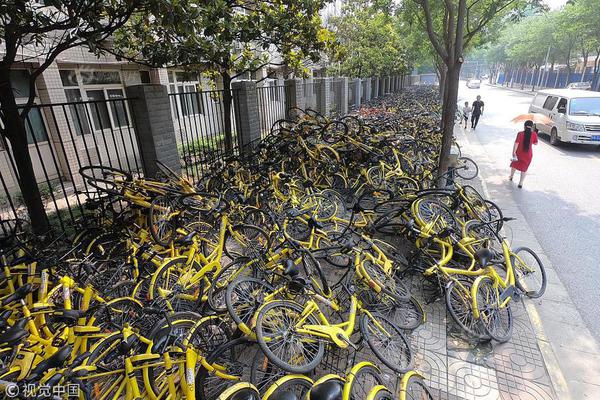【indian women sex videos】Enter to watch online.JA Community Leaders Denounce Administration’s Use of Alien Enemies Act to Deport Immigrants

Former incarceree June Aochi Berk shares her experiences with reporters.
By J.K. YAMAMOTO
Rafu Shimpo
Drawing parallels to the government’s actions during World War II, Japanese American community leaders on March 18 condemned the Trump Administration’s invocation of the Alien Enemies Act of 1798 in carrying out mass deportations.
The administration has deported more than 200 alleged members of a Venezuelan gang to a prison in El Salvador without charges or trial. Judge Patricia Millett of the U.S. Court of Appeals for the D.C. Circuit said this week that “Nazis got better treatment under the Alien Enemies Act.”
“President Trump is weaponizing this legislation to target, detain and deport Venezuelan immigrants without due process of law,” Abigail Chun of Nikkei Progressives said during a press conference at the Japanese American National Museum in Little Tokyo. “Following his invocation, President Trump defied of federal judge’s order to pause the deportation of Venezuelan and other immigrants, demonstrating a blatant disregard for the rule of law.
“Japanese Americans know the devastating consequences of the Alien Enemies Act. The last time this authority was invoked, it was used to arrest and detain, without trial, first-generation Japanese immigrants in Department of Justice prisons and paved the way for the unconstitutional incarceration of over 120,000 Japanese Americans in concentration camps across the country.
“The use of the Alien Enemies Act is as wrong today as it was in 1941, and we call on all justice-loving people to speak out against this dangerous repetition of history.”
”Based Solely on Their Japanese Heritage”

“We are here today to say we must not scapegoat and criminalize entire communities of immigrants and people of color,” said Hope Nakamura of Nikkei Progressives. “During World War II, the U.S. government imprisoned Japanese Americans without due process, stripping away our liberty and dignity and causing incalculable personal and property losses. The Alien Enemies Act of 1798 was invoked immediately after war was declared against Japan in December of 1941. Using his wartime authority, President (Franklin) Roosevelt instructed the FBI and Army intelligence personnel to detain or deport our community leaders, Buddhist ministers, language instructors, martial arts practitioners, and others based solely on their Japanese heritage …
“Two months later, Roosevelt signed Executive Order 9066 to imprison all persons of Japanese ancestry in concentration camps for the duration of the war. Decades later, the U.S. government acknowledged and apologized for its unjust incarceration of Japanese Americans and our community vowed to educate the public against future attempts to stir up anti-immigrant hate in order to deny due process …
“The recent erasure of our community stories from government websites and documents such as the National Archives, the U.S. Army, and Arlington National Cemetery, and the complete dismantling of diversity, equity, and inclusion programs, are literally turning back the clock by several decades. Encouraged by this rhetoric of the Trump Administration blaming immigrants and people of color for our country’s ills, we have seen the rise of white supremacists …
“We urge Congress to pass the Neighbors Not Enemies Act, which repeals the Alien Enemies Act and affirms the principle that all immigrants deserve just treatment. Under the law, immigrants have helped build this country and contribute daily, not just to our economy, but to the society at large. They are our friends, our co-workers, our neighbors, and our family members.”
”Bypassing Constitutional Protections”

Kenyon Mayeda, JANM’s chief impact officer, directed reporters’ attention to the former home of Nishi Hongwanji Buddhist Temple across the plaza. “On the corner of First and Central behind me is where Japanese Americans boarded buses to be taken to camp. This place serves as a reminder of the dark chapter that remains one of the most egregious violations of civil rights in American history …
“President Trump’s plan to invoke this obscure wartime authority is an alarming overreach of executive power, bypassing constitutional protections … This law was never intended to be used as an immigration enforcement tool. The president is stretching the definition of ‘wartime’ to justify sweeping, unilateral action. The act must would allow mass deportations without court hearings, legal representation, or asylum screenings …
“Scapegoating immigrant communities under the guise of national security is a pattern we have seen throughout U.S. history, from the Chinese Exclusion Act to the Japanese American incarceration to post-9/11 targeting of Muslim communities. Policies like these do not make us safer. They divide us and undermine the values of democracy, justice, and equality.”
”Deeply Racist and Xenophobic”

Seia Watanabe, vice president of public relations for the JACL, said, “The Alien Enemies Act was last used to intern 31,000 Japanese, German, and Italian nationals during World War II … The Venezuelan immigrant community is now being similarly targeted through the unlawful use and expansion of the Alien Enemies Act. This is the fourth indication of the Alien Enemies Act in the history of the United States. However, this is the only time outside of wartime under the newly signed executive order.
“Any Venezuelan national … over the age of 14 who is alleged to have ties to the Tren De Aragua gang is subject to be arrested, detained, and deported regardless of their immigration status … Not only is this an unlawful use of the Alien Enemies Act outside of the scope of wartime, but it is overly broad and can be used to target individuals with no proven connection to the group except for through their Venezuelan citizenship.
“The Trump Administration’s invocation of the Alien Enemies Act is unconstitutional and continues the deeply racist and xenophobic legacy of the Japanese American incarceration during World War II.”
”Hurting People Just Like 1941”

Kyoko Nancy Oda, president of the Tuna Canyon Detention Station Coalition, spoke as a former incarceree of Tule Lake Segregation Center. “Tuna Canyon is … where 2,000 Japanese, German, and Italian aliens were held during World War II. The Japanese were not allowed to be citizens until 1952. So who were they? They were the leaders of our community. People like Rev. (Taiichi) Tsuyuki from the Konko Church … like Heigoro Endo, who was a fisherman, like Sei Fujii, who was a journalist … Shinsuke Sugimoto, who was a kendo master.”
Oda told the stories of Sigrid Toye, who was a child when her German immigrant father was taken, leaving her mother with no money and no job; Haru Kuromiya, whose mother had just had a baby when her father was imprisoned; and Kenzo Sugino, a Little Tokyo optometrist whose wife and three children were left to fend for themselves.
“Clearly, the separation of the families was horrible then and still today,” Oda added. “The children were told often ‘You’re an American,’ but that may be taken away with a threat with birthright citizenship … I believe that the Alien Enemies Act is unlawfully used today. I hate the fear that is rampant, hurting people just like 1941.”
”Continue Telling Your Stories”

Lizbeth Abeln, deputy director of the Inland Coalition for Immigrant Justice, said, “The Trump Administration is putting out propaganda … dehumanizing immigrants … I, as an immigrant myself, have experienced what it’s like to be subjected to these harmful policies. My family has been impacted by separation, by detention, and I believe that there’s an alternative path forward.
“We need to fix the system, but more importantly, uproot it and replace it with a system that is focused on care, not on punishment. And so I invite you all to continue uplifting the stories of immigrants, to continue telling your stories as Japanese Americans … For the next four years, it will be really important for us … to learn from each other, to support mutual aid networks, and to be in solidarity with each other.”
”First to Be Rounded Up”

Rinban William Briones of Los Angeles Hompa Hongwanji Buddhist Temple (Nishi) noted that the former site of his temple was where Japanese Americans were “assembled, processed and bussed to relocation centers … Families were up upended from their community, homes and livelihood to camp barracks in barren areas throughout the United States.
“Buddhist priests were the first to be rounded up because the U.S. government and military authorities viewed Buddhism as un-American and its followers as more likely to be disloyal. A total of 120,000 Japanese descendants, without due process, were imprisoned under the worst conditions for the next three to four years …
“As Buddhists, our starting point has been the equality of all sentient beings and their well-being … We cannot sit by this time and see our neighbors, our friends and families be intimidated with deportation by this administration. We can’t repeat injustices.”
”Dangerous Escalation”

Bruce Embrey, co-chair of the Manzanar Committee, condemned “the Trump Administration’s misuse of outdated and draconian laws for immigration enforcement. The use of the Alien Enemies Act and the Immigration and Nationality Act of 1952, which was used to detain Mahmoud Khalil, a Palestinian graduate student at Columbia University, is an undemocratic remnant of the McCarthy period. All of this marks a dangerous escalation of the administration’s attacks on civil liberties.
“These actions are more than just an echo of what our families experienced during World War II … It’s important to remember before forcibly removing our families, our government and the media whipped up racist and xenophobic hysteria to demonize our community. In fact, the government fabricated an an entire narrative claiming the forced removal was based on military necessity and national security. This lie, challenged at the time by America’s intelligence services, was not fully debunked until the 1970s after years of organizing for justice.”
Noting that ICE Director Tom Homan has said, “I don’t care what judges think,” Embrey continued, “Everyone should be alarmed if the Trump Administration refuses to follow a judge’s orders. We are clearly in a constitutional crisis. The Manzanar Committee will continue to challenge the lies being told about immigrants and refugees. We will not stand by and watch what other communities are attacked like we were.”
On hand to share their stories with reporters were June Aochi Berk, 92, who was incarcerated in the Rohwer, Ark. camp; Carrie Furuya Morita, whose grandfather was held at the Tuna Canyon Detention Station in Tujunga and the Lordsburg Internment Camp in New Mexico; and Kathy Nishomoto, whose grandfather was detained at Tuna Canyon and the Fort Lincoln Internment Camp in Bismarck, N.D.



